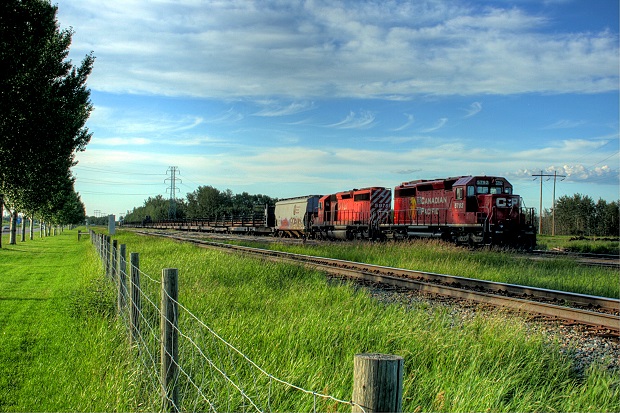In a move meant to the strengthen liability and compensation regime concerning biological hazards stemming from railway accidents, Canada’s Ministry of Transportation has announced new regulations that enforce a “polluter pays” principle.
With damages attributed to railway disasters running in the billions of dollars, the need for train operators to have adequate insurance coverage has never before been more urgent.
“Reinforcing rail safety is a top priority for the Government of Canada,” Marc Garneau, Minister of Transport, said. “However, should a rail accident take place, the strengthened liability and compensation regime will ensure that the polluters, and not Canadian taxpayers, will be held responsible for compensating victims and paying for clean-up.”
Under the Safe and Accountable Railway Act which will come into force on June 18, the mandatory minimum insurance requirements for federally regulated railways, based on the type and volume of dangerous goods they carry, will range from $25 million to $1 billion.
As well, two middle insurance levels, $100 million and $250 million, are being phased in to provide short line railways with additional time to adjust to the new requirements. These levels will be fully implemented on June 18, 2017.
The 2013 Lac-Magantic, Que. rail disaster involving an unattended 74-car freight train carrying crude oil resulted in fire and explosion of multiple tank cars that caused the death of four people (the bodies of five other persons were reported missing and never found), as well as the leveling of several buildings. Some estimates placed the derailment and oil spill amounted to $2.7 billion in damages. Claims to local insurers were estimated at $25 million for Intact Financial, $18 million for Promutuel and $7 million for Desjardins Group.
The new regime also establishes a supplementary compensation fund—the Fund for Railway Accidents Involving Designated Goods—financed by shippers of crude oil by rail. This fund will cover any damages above the railways’ mandatory insurance level for accidents involving crude oil.
Railways will have to demonstrate they carry the appropriate level of insurance coverage in order to receive and maintain a Certificate of Fitness to operate from the Canadian Transportation Agency.
All shippers of crude oil carried by a federally regulated railway in Canada will be required to contribute to the shipper-financed compensation fund through a levy of $1.67 per tonne (indexed to inflation).

